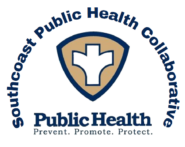Background
Avian influenza (bird flu) Type A viruses do not normally infect people, but rare cases of human infection have occurred with some avian influenza viruses. Illnesses in humans from avian influenza virus infections have ranged in severity from no symptoms or mild illness (e.g., eye infection, upper respiratory symptoms) to severe disease (e.g., pneumonia) that resulted in death. Human infections with avian influenza viruses have most often occurred after close or lengthy unprotected contact (i.e., not wearing gloves or respiratory protection or eye protection) with infected birds or places that sick birds or their saliva, mucous and feces have touched. Very rarely, human infections with avian influenza viruses have happened through an intermediary animal, including a cat and a cow.
Human infections with avian influenza viruses can happen when virus gets into a person's eyes, nose or mouth, or is inhaled. This can happen when virus is in the air (in droplets or possibly dust) and a person breathes it in, or possibly when a person touches something that has virus on it and then touches their mouth, eyes or nose. The spread of avian influenza viruses from one infected person to a close contact is very rare, and when it has happened, it has not led to continued spread among people.
Protect Yourself:
- Protective actions around wild birds Avoid direct contact with wild birds and observe them only from a distance, if possible. Learn more.
- What to do if you find a dead bird Avoid contact with wild or domestic birds that appear ill or have died and call to report sick or dead birds. Learn more.
- Protective actions around other animals with H5N1 bird flu Avoid unprotected exposure to infected live or dead animals or surfaces contaminated by them. Learn more.
- Protective actions if you work with potentially infected dairy cattle Avoid unprotected direct physical contact or close exposure with cattle and materials potentially infected or confirmed to be infected with HPAI A(H5) virus. Learn more.
- Consuming Milk People should not eat or drink raw milk or products made with raw milk. Choosing pasteurized milk is the best way to keep you and your family safe. Learn more.
- Preparing food It is safe to eat properly handled and cooked poultry in the United States. There are recommendations around products from other animals with H5 virus infections, including cattle and milk. Learn more.
- Traveling to other countries CDC does not currently recommend any travel restrictions related to bird flu to countries affected by bird flu in birds, other animals or people. Learn more.
- If you have contact with infected birds or other animals and become sick Learn what to do if you have contact with infected birds or other animals and become sick. Learn more.
- Clinicians can visit CDC's avian influenza (bird flu) information for health professionals for the latest guidance. Learn more.
- Public health professionals and laboratorians can visit CDC's avian influenza (bird flu) information for public health partners for the latest guidance. Learn more.
- Get a seasonal flu vaccine Seasonal flu vaccination will not prevent infection with bird flu viruses, but can reduce the risk of getting sick with human influenza viruses and thus the risk for seasonal and bird flu co-infection. Learn more.
If you find a sick or deceased bird:
- The public should report observations of sick or deceased wild birds if five or more birds are found at a single location by filling out a form at mass.gov/reportbirds.
- Report sick or deceased birds to your local Animal Control
- Report sick or dead poultry or other domestic birds by calling MDAR’s Division of Animal Health at (617) 626-1795.
- People with questions about the public health impact of the illness can visit www.mass.gov/info-details/avian-flu or call the Division of Epidemiology (available 24/7) at 617-983-6800.
